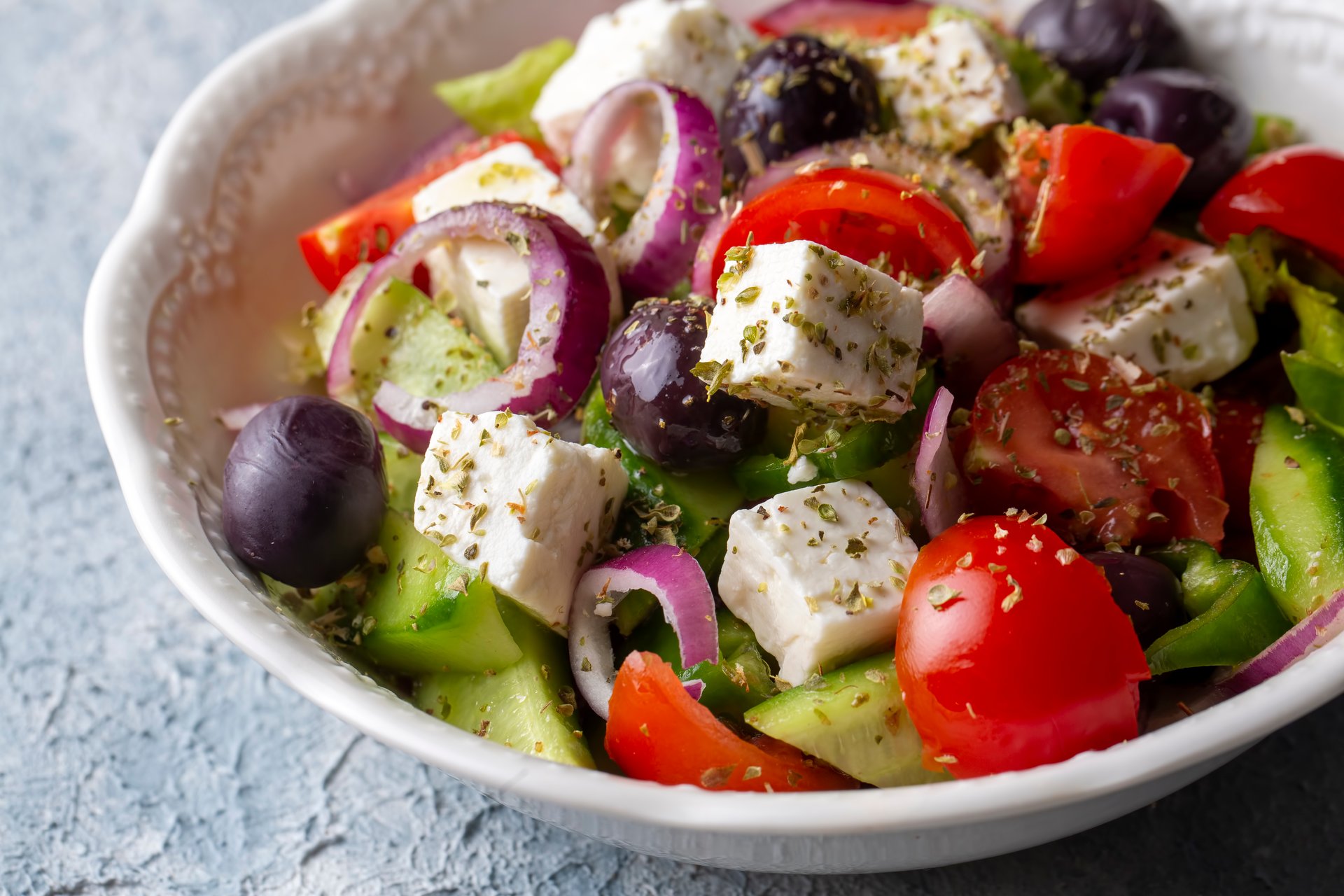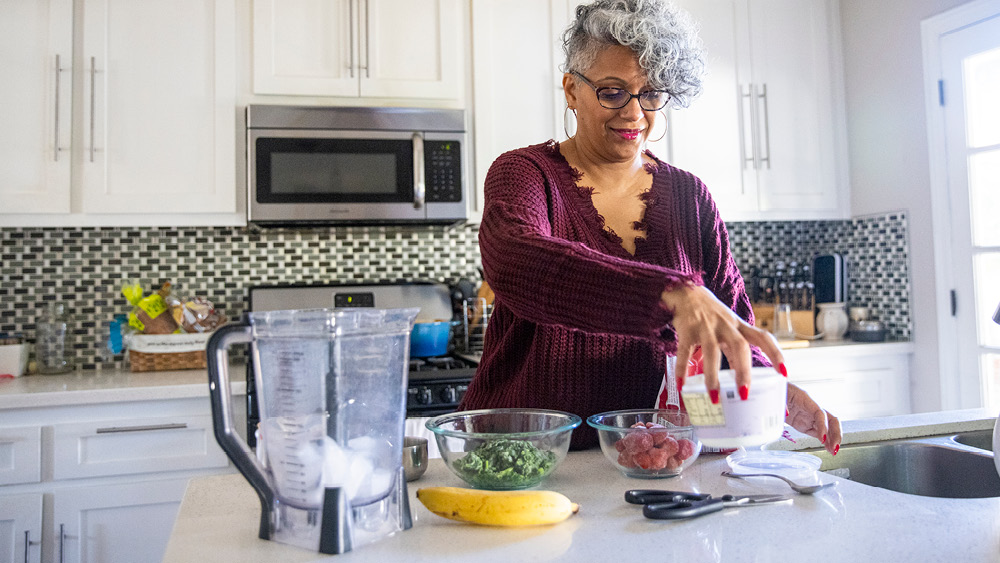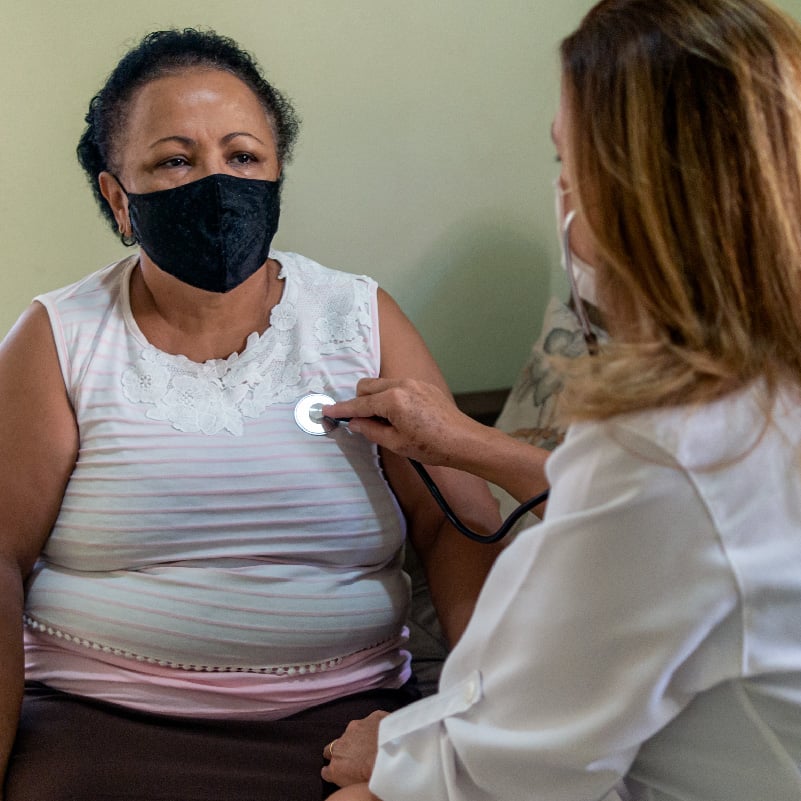Sticking to a healthy, balanced diet can make clear improvements to your health in many areas—your heart, brain, bones, and more. But did you know that healthier food choices can also reduce your risk of stroke?
For delicious and fresh ideas about which foods you should eat to reduce risk of stroke, we relied on creators at EatingWell and conversations with Elizabeth LaRue, RD, a clinical diabetes educator with Rochester Regional Health.
Food choices that reduce stroke risk
Eat more whole fruits and veggies
Whole fruits and vegetables are rich in antioxidants, fiber, and a variety of vitamins and nutrients with proven health benefits. Choosing a diet high in fruits and vegetables can reduce risk of many health conditions, including stroke and heart disease.
Pay attention to cholesterol
There are two types of cholesterol: low-density lipoprotein (LDL) and high-density lipoprotein (HDL).
LDL cholesterol is considered “bad” cholesterol because it can be harmful to the heart and brain. This type of cholesterol contributes to arterial plaque development in the blood, increasing risk of stroke and heart disease. Foods like red meat, fried food, butter, and processed meats are high in LDL cholesterol and should be limited.
HDL cholesterol, or “good” cholesterol, helps protect against ischemic (silent) stroke by helping guide bad cholesterol to the liver and out of the bloodstream. Foods rich in unsaturated fats, which help support good cholesterol levels, include olive oil, nuts, seeds, fatty fish, avocado, and more.
Reduce alcohol consumption
Drinking too much alcohol can lead to high blood pressure, diabetes, atrial fibrillation, and liver damage—all health conditions that increase risk of stroke.
Avoid drinking alcohol or aim to drink in moderation. According to the Mayo Clinic, drinking alcohol in moderation generally means drinking up to one drink a day for women and up to two drinks a day for men.
Learn more: How Alcohol Affects on the Body
Reduce salt intake
The 2020-2025 Dietary Guidelines for Americans recommends consuming less than 2,300mg of sodium per day — equivalent to one teaspoon of salt. Doctors may suggest even less for patients with certain medical conditions. LaRue recommends omitting salt from recipes and substituting with your favorite herbs and spices for extra flavor.
Recipes to help reduce risk of stroke
Chopped Salad with Chickpeas & Olives

Ingredients
- 2 tbsp. extra-virgin olive oil
- 2 tbsp. red-wine vinegar
- ¼ tsp. garlic powder
- ¼ tsp. salt
- ¼ tsp. ground pepper
- 1 (15 oz.) can no-salt-added chickpeas, rinsed
- 1 cup diced cucumber
- 1 cup quartered cherry tomatoes
- ⅓ cup chopped parsley
- ¼ cup finely chopped red onion
- ¼ cup halved Kalamata olives
- ¼ cup crumbled feta cheese
Instructions
- Whisk oil, vinegar, garlic powder, salt and pepper in a large bowl.
- Add chickpeas, cucumber, tomatoes, parsley, onion, olives and feta; toss to coat.
Nutrition
Serving Size: 1 cup
Per Serving: 256 calories; fat 14g; cholesterol 8mg; sodium 495mg; carbohydrates 24g; dietary fiber 5g; protein 9g; sugars 3g; niacin equivalents 1mg; saturated fat 3g; vitamin a iu 808IU; potassium 372mg.
Veggie & Hummus Sandwich
Ingredients
- 2 slices whole-grain bread
- 3 tbsp. hummus
- ¼ avocado, mashed
- ½ cup mixed salad greens
- ¼ medium red bell pepper, sliced
- ¼ medium tomato, sliced
- ¼ cup sliced cucumber
- ¼ cup shredded carrot
Instructions
- Spread one slice of bread with hummus and the other with avocado. Fill the sandwich with greens, bell pepper, cucumber, tomato and carrot.
Nutrition
Serving Size: 1 sandwich
Per Serving: 325 calories; protein 12.8g; carbohydrates 39.7g; dietary fiber 12.1g; sugars 6.8g; fat 14.3g; saturated fat 2.2g; vitamin a iu 6388.1IU; vitamin c 49.8mg; folate 171.1mcg; calcium 107.8mg; iron 3.4mg; magnesium 105.3mg; potassium 746.3mg; sodium 407mg; thiamin 0.3mg; added sugar 2g.
Pesto & White Bean Stuffed Tomato
Ingredients
- 1 large tomato
- ¼ cup canned white beans, rinsed
- 2 teaspoons pesto
- Torn fresh basil for garnish
Instructions
- Cut tomato in half horizontally and hollow out the halves.
- Fill tomato with beans and drizzle with pesto.
- Garnish with basil.
Nutrition
Serving Size: 2 stuffed tomato halves
Per Serving: 116 calories; fat 5g; sodium 399mg; carbohydrates 17g; dietary fiber 5g; protein 6g; sugars 5g; niacin equivalents 1mg; saturated fat 1g; vitamin a iu 1699IU; potassium 627mg.







